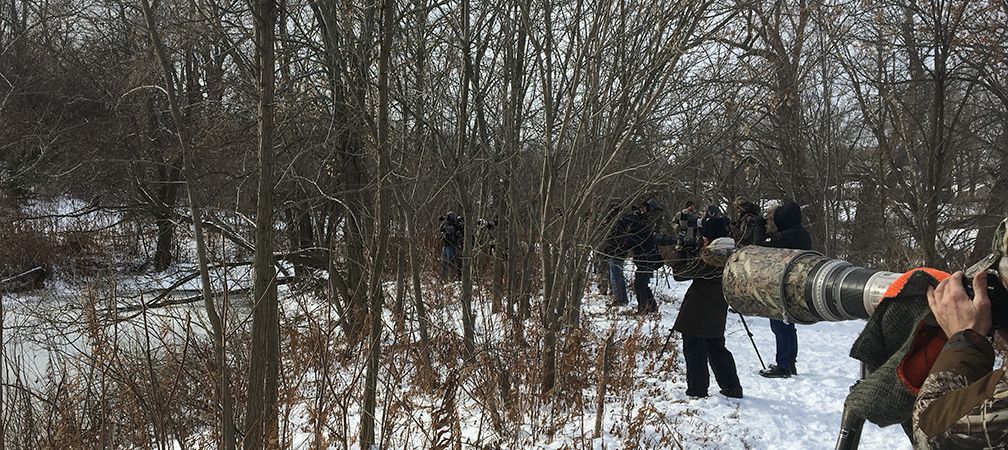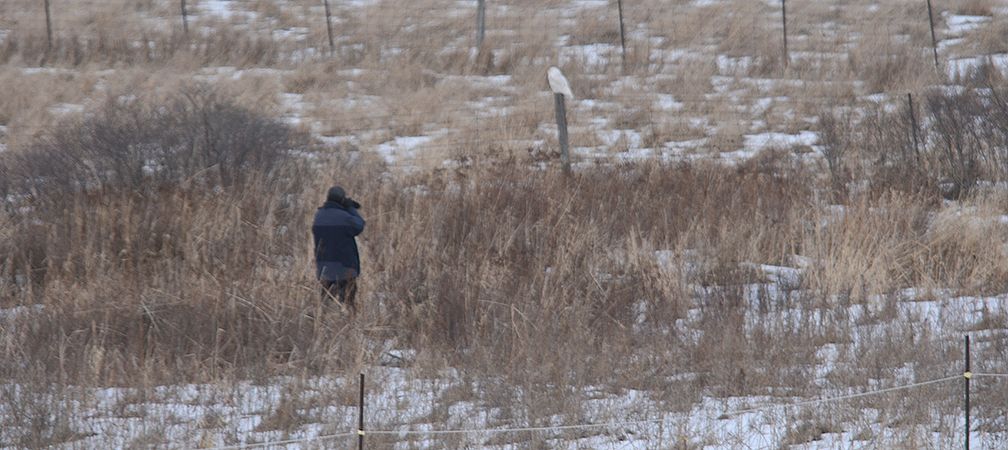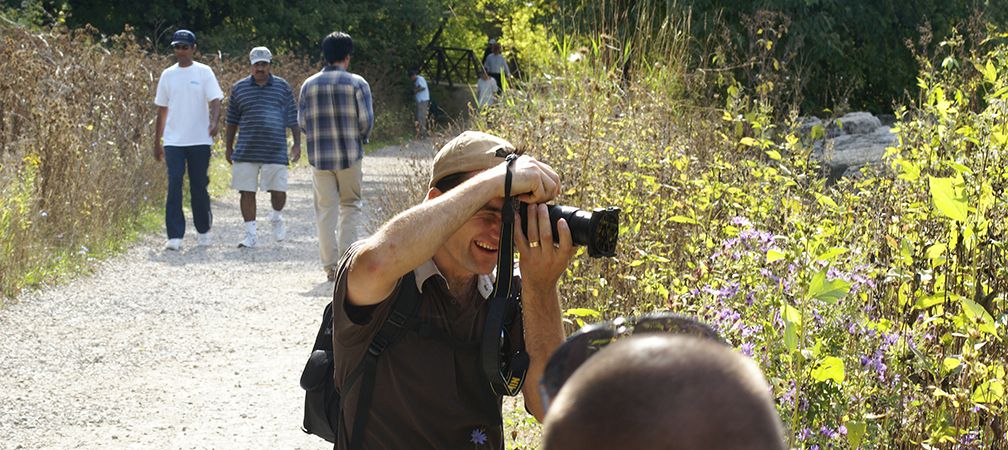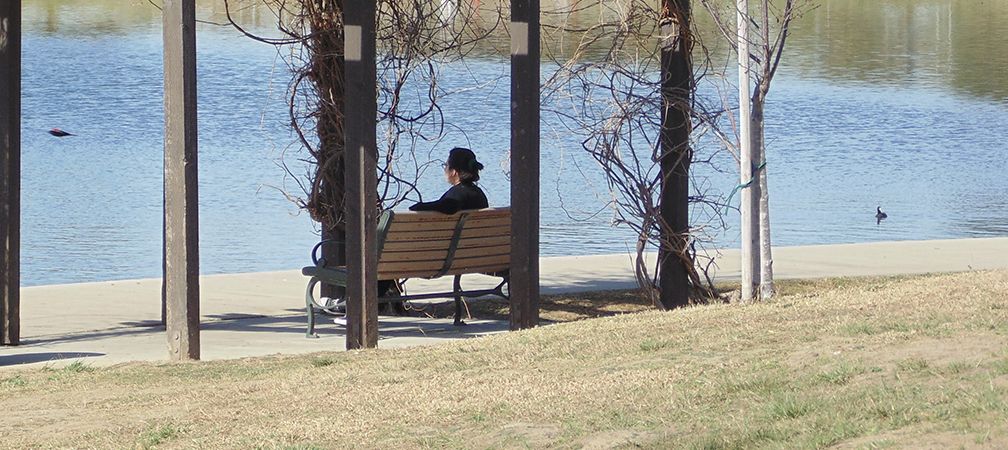Ontario Nature Blog
Receive email alerts about breaking conservation
and environmental news.
© Lora Denis
Digiscoped Franklin's gull and killdeer © Andy Jones, Cleveland Museum of Natural History CC BY-NC-SA 2.0
There are a few published codes of practices for nature photographers, but here we’ve expanded the code to cover all nature watchers. Like all codes, it offers general guidelines that you can adapt as you see fit. Always be mindful of the circumstances you are in and invite others to follow these best practices when enjoying nature.
Do not harm wildlife – Countless challenges threaten animals’ survival, so their welfare should always take precedence over people’s desire to observe them.
Do not bait wildlife – When people feed wild animals, they can disrupt the creatures’ foraging or predatory cycles. Food that is not part of their regular diets can also cause physiological harm and changes in their natural behaviours, making them more susceptible to injury, hunting or predation.
Do not disturb nesting birds – People should not approach nests or handle eggs or young birds, particularly during breeding seasons. Many adult birds will abandon nests or roll eggs out of the nest if they perceive nearby humans as potential predators.

Do not stress wildlife – Animals disturbed or distracted by human activity can become more susceptible to injury, predators and malnutrition. Additionally, wild animals tend to avoid contact with humans and may not return to a location from which they were scared away.

Do not trespass on private property – Rules and property laws should always be respected.
Try not to scare wildlife away – Wild animals are sensitive, avoid human disturbance and may not return to a location where they were scared. Also, scaring wildlife away is rather annoying for other nature lovers who may come after you.
Do not share telltale locations of sensitive and vulnerable species – Rare wildlife and plants need to be protected from people who may poach, harass or otherwise disregard their need for an undisturbed existence.
Do not handle wildlife unless you have a license – Touching wild animals can contaminate them with chemicals in sunscreen, bug spray and other consumer products, and can transmit harmful viruses to the wildlife as well as expose people to zoonoses (infectious diseases that are transmissable from animals to humans).
Do not litter – Garbage can harm animals that eat it. It also mars natural habitats and encourages other people to be similarly careless in natural spaces. Litter should be picked up and discarded appropriately.
Do not crowd wildlife – Crowding animals stresses them and can increase poaching and predation. This is of particular concern for owls and rare species.
“To respect and care for our natural spaces is to remember your connectedness to the landscape. We all have a responsibility to care for our home.” – Keeva Fitzpatrick, Nature Reserves Technician
Lynde Shores Conservation Area © Paul Howard CC BY-NC-SA 2.0
Stay on sanctioned trails – Remaining on designated trails helps to avoid damaging sensitive plants and natural features.
Be prepared – Binoculars, appropriate footwear and clothing, sunscreen, snacks, water and field guides make outdoor experiences more enjoyable.

Respect wildlife – Look for signs of stress to avoid disturbing wildlife from engaging in the natural behaviours they need to regulate their health and well-being.
Remove litter from trails – This discourages others from littering, improves the experience of other visitors and removes pollution that could harm wildlife.
Be patient – By simply taking their time, people will see and hear more.

Be quiet – Wildlife quickly becomes aware of human presence. Minimizing noise improves everyone’s chances of seeing animals in their habitats.
Support environmental organizations – People can reinforce the work of organizations helping to protect wild species and spaces.
Did we miss anything? Please add more dos and don’ts to the comment section below

Gananoque Lake Nature Reserve © Smera Sukumar
Great guidelines. As a resource, I hope you might consider Leave No Trace Canada. Our Principles all come to bear for anyone enjoying our natural places across Canada. Especially, for this group, #6 Respect Wildlife. Find out more here: https://leavenotrace.ca/the-seven-principles-of-leave-no-trace/
Do – speak up when you see people acting inappropriately. If you are in a park you can contact the staff if you do not feel like forcing a confrontation.
My favoured specialty, priority? Delittering area trails, hiway shoulders & abutting vegetated ditches, gullies, snow-dump fields, etc., using special town-supplied ‘Pitch-In’ Campaign litter grabbers. And, as a dyed-in-the-wool birder, pointing out (Bald) Eagles when seen perched sentinel-style way up atop the meandering Mattawishkwia River’s south-side boreal (mixed) forest stands’ towering chicôts whilst youngsters, canine walkers and not-so-young scooter users traverse the town’s north-side, much-travelled ‘all-purpose’ foot trail.
Most of these seem like ‘no-brainers’ to me but you never know. Maybe a big ‘Don’t’ should be ‘Don’t let your dog off their leash…and don’t go anywhere near wildlife with your dog’.
Hi Derek,
Thanks very much for pointing out that typo error. I have since updated and corrected it. Thanks for the valid point and very helpful insight here.
Noah
Hi Noah
Great job here one small comment re
Do not disturb nesting birds
“adult birds …detecting human odors”
Correct me if you have another reference but I believe most birds have a poor sense of smell ( except vultures ) . Its not our odour they are concerned about its their time away from their nest, eggs or young that worries them. I look after nest boxes for bluebirds , swallows, wrens and chickadees and I believe the birds think you are a predator. They will abandon the nest if they think you have had time to eat their young or have taken over the nest, but if you are quick when monitoring a nest or having a look they will continue to look after it . We have been monitoring 100 bird houses for eight years and have had very high success with the program fledgling many birds. People can help nestling birds that have fallen out of a nest too soon by returning them to the nest . Adults will continue to feed them. Left on the ground if they can’t fly may expose them to cats which may kill the young and adult parent s will trying to feed them. Human odour is detected by mammal predators however which may follow a human scent to a nest . In any case keeping away from nesting birds is the best policy.
Great blog! Wish everyone would follow this advice. I would not handle a fledgling unless it fell out of the nest, to help provide support and relieve the stress it causes the birds.
Thanks, I have been a member for many years!